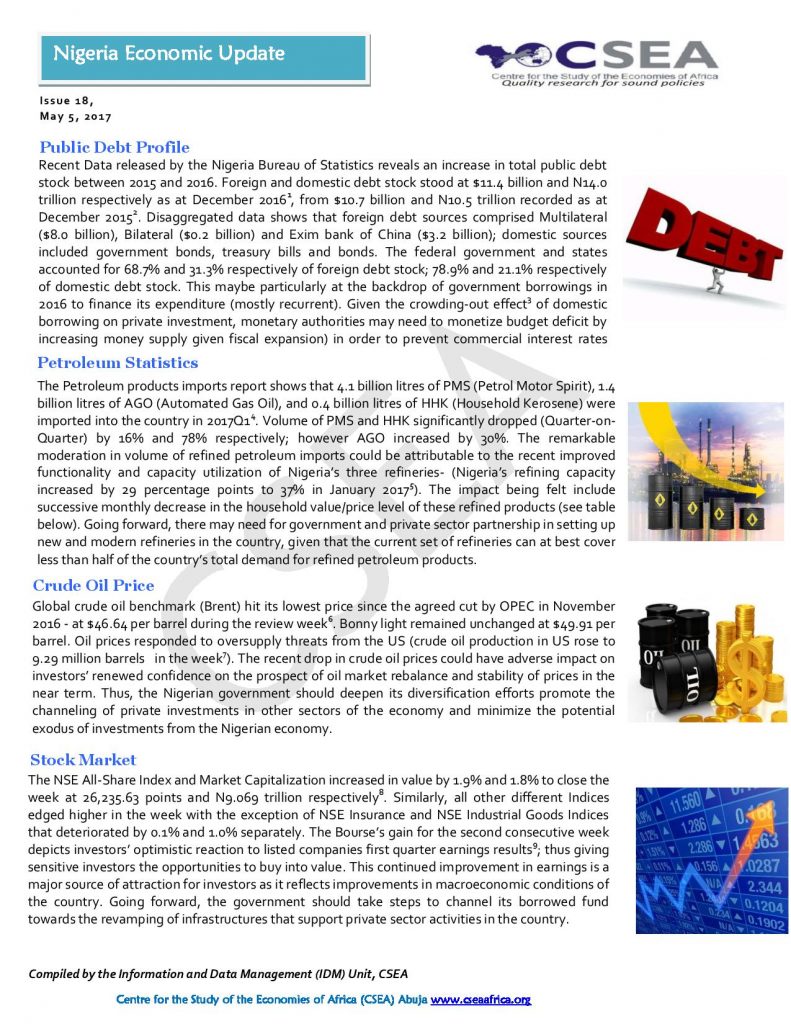Macroeconomic Report & Economic Updates

May 18, 2017
Nigeria Economic Update (Issue 18)
Recent Data released by the Nigeria Bureau
of Statistics reveals an increase in total public debt stock between 2015 and
2016. Foreign and domestic debt stock stood at $11.4 billion and N14.0 trillion
respectively as at December 2016, from $10.7 billion and N10.5
trillionrecorded as at December 2015. Disaggregated
data shows that foreign debt sources comprised Multilateral ($8.0 billion),
Bilateral ($0.2 billion) and Exim bank of China ($3.2 billion); domestic
sources included government bonds, treasury bills and bonds. The federal
government and states accounted for 68.7% and 31.3% respectively of foreign
debt stock; 78.9% and 21.1% respectively of domestic debt stock. This maybe
particularly at the backdrop of government borrowings in 2016 to finance its
expenditure (mostly recurrent).
